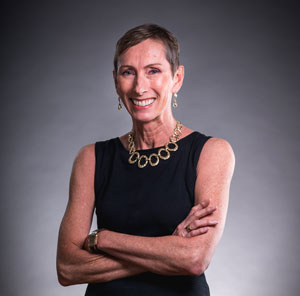The Future of Online Learning Is Flexible and Stackable
The Campus Technology Insider podcast explores current trends and issues impacting technology leaders in higher education. Listen in as Executive Editor Rhea Kelly chats with ed tech experts and practitioners about their work, ideas and experiences.

Dr. Betty Vandenbosch
Over the past few years, online learning in higher education has gone through a period of disruptive change. Not only did the pandemic trigger a massive shift from in-person classes to online, but it also brought new models of hybrid learning to the forefront. And micro-credentials, programs certifying specific competencies that can stand alone or be applied toward a larger degree, have gained momentum as learners have needed to reskill and compete in an evolving workforce. To explore these trends and more, we spoke with Dr. Betty Vandenbosch, chief content officer at Coursera, about the state of online education, the future of the traditional four-year degree, and what universities should be doing to keep up with alternative credential pathways.
Resource links:
Music: Mixkit
Duration: 25 minutes
Transcript
Where to Listen
Campus Technology Insider is available on Apple Podcasts, Google Podcasts, Amazon Music, Spotify and Stitcher. Subscribe today or listen at campustechnology.com/podcast.
About the Author
Rhea Kelly is editor in chief for Campus Technology, THE Journal, and Spaces4Learning. She can be reached at [email protected].